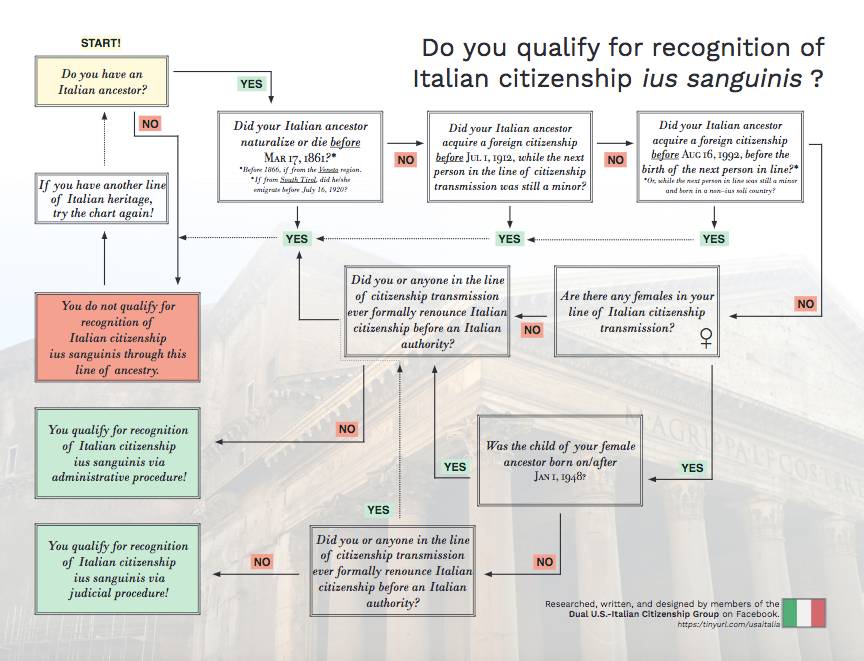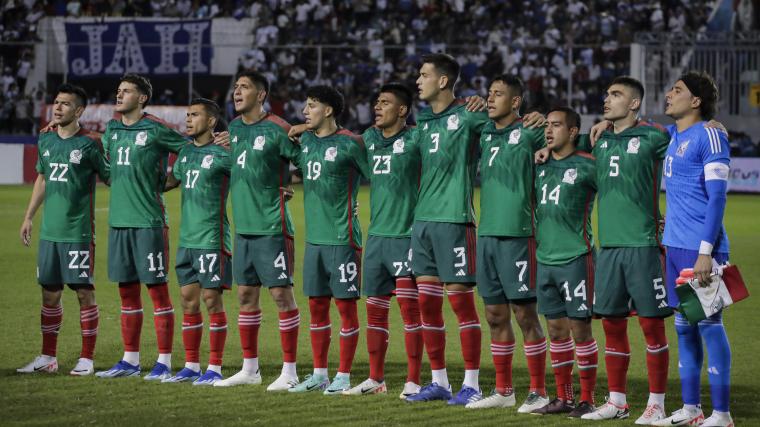Understanding Italy's New Citizenship Law For Great-Grandchildren

Table of Contents
Eligibility Requirements: Who Qualifies Under Italy's New Law?
Italy's ius sanguinis principle grants citizenship based on descent from an Italian citizen. Historically, this right was often limited to a closer lineage, but recent interpretations and legislation have broadened the possibility for great-grandchild claims of Italian citizenship. The key difference between the old law and current practice lies in the stricter interpretation and enforcement of "uninterrupted lineage." This means proving a continuous line of Italian citizenship through each generation, without any breaks in the chain.
- Uninterrupted Lineage: This is paramount. You must demonstrate an unbroken line of Italian citizenship from your great-grandparent to you. Any ancestor who renounced Italian citizenship breaks this chain. This requires meticulous genealogical research.
- Proof of Italian Citizenship of the Great-Grandparent: This usually involves obtaining certified copies of their birth certificate, demonstrating Italian citizenship at birth.
- No Renunciation of Citizenship: It is crucial to prove that no ancestor in the lineage formally renounced their Italian citizenship. This can often be the most challenging aspect to prove.
- Impact of Marriage to a Non-Italian Citizen: Marriage to a non-Italian citizen does not automatically break the chain of Italian citizenship, provided the Italian citizenship was transmitted correctly to subsequent generations. However, documentation proving this transmission is essential.
Proving lineage for great-grandparent citizenship claims presents unique challenges. Records may be incomplete, lost, or difficult to access, particularly for those tracing ancestry back many generations. Many Italian towns and villages, especially those affected by past conflicts, experienced loss of records. This necessitates thorough research and potentially professional assistance.
The Documentation Process: Gathering Necessary Evidence for Your Application
The documentation process for Italian citizenship by descent is rigorous. Meticulous record-keeping and organization are paramount to a successful application. Missing even one document can cause significant delays.
- Birth Certificates (all generations): Certified copies of birth certificates for your great-grandparent, grandparent, parent, and yourself are essential. These must be translated if not in Italian.
- Marriage Certificates (all generations): These documents are crucial for establishing the lineage and proving the relationship between generations. Similarly, they must be accurately translated.
- Death Certificates (if applicable): Death certificates for any deceased ancestors are needed to complete the genealogical record.
- Military Records (if applicable): In some cases, military records may be necessary to verify citizenship and residency.
- Passports or Other Identification Documents (if applicable): These can be helpful supplementary documents.
- Translation Requirements and Certified Translations: All documents not originally in Italian must be professionally translated and certified as accurate by a sworn translator. This is a non-negotiable requirement.
Obtaining necessary documentation can be difficult, especially for older generations. Records may be scattered across different archives, and accessing them may involve navigating complex bureaucratic processes. Furthermore, locating vital records from war-torn regions might prove exceptionally challenging. Genealogical research services specializing in Italian ancestry can significantly aid in this process.
The Application Process: Step-by-Step Guide to Italian Citizenship
Applying for Italian citizenship by descent involves several key steps:
- Gather all necessary documents: Ensure you have all required documents translated and certified before proceeding.
- Determine the relevant Italian Consulate or Embassy: Your application must be submitted to the consulate or embassy with jurisdiction over your current place of residence.
- Complete the Application Forms: The application forms are detailed and require accurate information. Any inaccuracies can lead to delays or rejection.
- Submit Your Application: Submit your completed application and all supporting documents to the relevant consulate or embassy.
- Waiting Period and Processing: Processing times can vary significantly, often taking several months or even years.
- Potential Attorney Assistance: Consider seeking an attorney specializing in Italian citizenship law. Their expertise can streamline the process and prevent costly mistakes.
- In-Person Interviews: Interviews are sometimes required as part of the process to verify identity and information provided in the application.
Common Pitfalls and Challenges in Obtaining Italian Citizenship
Several common issues can hinder a successful application for Italian citizenship:
- Missing Documents: This is the most frequent reason for delays or rejection.
- Inaccurate Translations: Poorly translated documents can lead to misinterpretations and delays.
- Incomplete Genealogical Records: Gaps in your family history can disrupt the proof of uninterrupted lineage.
- Incorrect Application Completion: Failure to accurately and completely fill out the forms can lead to rejection.
Seeking professional assistance from experienced Italian citizenship lawyers is strongly recommended. They can navigate the complexities of the law, ensure all necessary documentation is gathered and correctly translated, and guide you through each step of the application process. This professional help can increase your chances of a successful application.
Conclusion
This article provided a comprehensive overview of Italy's new citizenship law for great-grandchildren, outlining eligibility requirements, the necessary documentation, and the application process. Navigating this complex legal landscape often requires careful planning and attention to detail. The process of obtaining Italian citizenship through great-grandparents can be lengthy and demanding, requiring thorough research and potentially professional assistance to overcome common challenges.
Are you a great-grandchild of an Italian citizen and considering applying for Italian citizenship? Begin researching your family history and gathering necessary documentation today. Understanding Italy's new citizenship law for great-grandchildren is the first step towards achieving your Italian citizenship dreams. Don’t hesitate to seek professional assistance if needed to ensure a smooth and successful application process.

Featured Posts
-
 F1 Season Opener Wolffs Upbeat Assessment
May 23, 2025
F1 Season Opener Wolffs Upbeat Assessment
May 23, 2025 -
 Essener Leistungstraeger Golz Und Brumme Ein Genauerer Blick
May 23, 2025
Essener Leistungstraeger Golz Und Brumme Ein Genauerer Blick
May 23, 2025 -
 Accident Mortel A Seoul Effondrement De Chaussee Et Deces D Un Motard
May 23, 2025
Accident Mortel A Seoul Effondrement De Chaussee Et Deces D Un Motard
May 23, 2025 -
 Duisburg Essen Mitarbeiterin Raeumt Bestechung Ein Ermittlungen Im Vollen Gange
May 23, 2025
Duisburg Essen Mitarbeiterin Raeumt Bestechung Ein Ermittlungen Im Vollen Gange
May 23, 2025 -
 Donde Ver La Final Concacaf Mexico Vs Panama
May 23, 2025
Donde Ver La Final Concacaf Mexico Vs Panama
May 23, 2025
